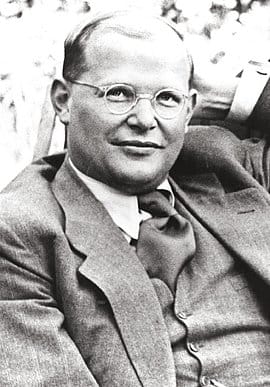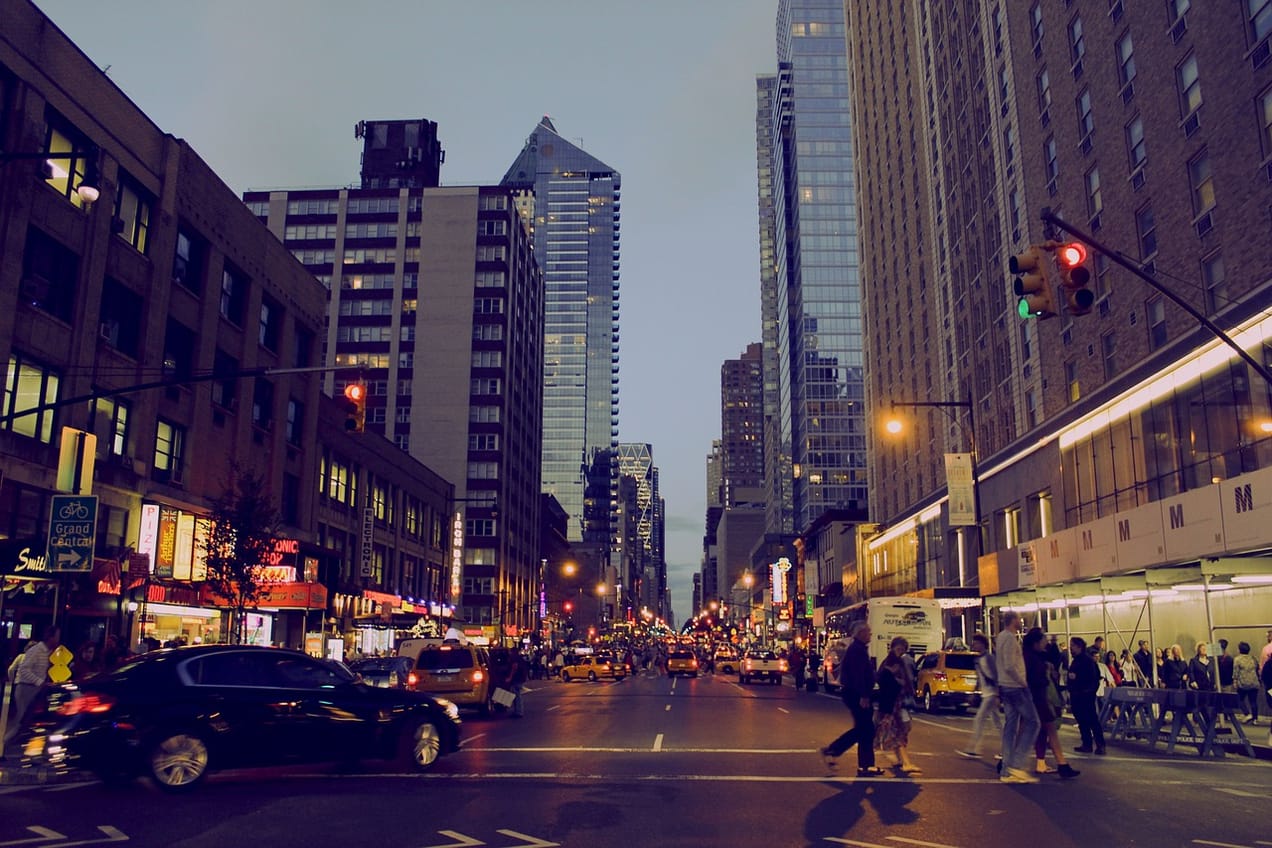
Bonhoeffer on Freedom: Meditation #1
Niemand erfährt das Geheimnis der Freiheit, es sei denn durch Zucht.
No one experiences the secret of freedom, except through discipline.
-
Dietrich Bonhoeffer looks like what he is: a German pastor from a comfortable background. Blonde and bespectacled, well-padded, a prosperous and gentle intellectual. He was indeed all those things.
In addition, he was also one of the fiercest warriors of the 20th century, and one of its moral heroes.
Bonhoeffer spoke out publicly against Hitler just two days after the latter became chancellor in 1933. The comfortable German pastor continued for the rest of his life to campaign publicly and privately against the Nazi regime.
He ran underground church seminars, mobilised ecclesiastical support outside Germany and was an active member of the German resistance. On 5th April, 1943, Bonhoeffer was arrested and imprisoned. He continued to speak his mind and stand by the truth.
Almost exactly two years later, Bonhoeffer was executed. They stripped him of his clothes and led him naked into the slaughtering ground and hung him.
-

This is not a man who is merely speculating theoretically about freedom. This is a man who achieved and sustained freedom in Nazi Germany. This is a man who thought, spoke, and acted in freedom despite the threat of death. One word from this man on freedom is worth entire libraries of academic speculations.
-
No one experiences the secret of freedom, except through discipline.
-
What does Bonhoeffer mean? What great truth is speaking through him? What is it saying to us, if we had the ears to listen?
-
In one usual sense of discipline, it refers to the ability to do things even when we do not want to do them. She’s very disciplined, we might say; no matter what, she always goes to the gym.
In one usual sense of freedom, it involves the ability to do the things we want to do. She’s so free, we might say; she chased her dreams even though everyone told her not to.
These two things seem to be in tension with each other. But Bonhoeffer seems to be saying that they go together; that we achieve one by practicing the other.
-
One way of reconciling the two is to say that discipline is a precondition for freedom. Here is a parallel that may explain this idea.
Consider the laws of the country you live in. There are many and they all restrain you. For example, you are legally required to drive on one side of the road, left or right as the case may be. In one sense, this is clearly a restriction of freedom - a free person drives wherever they damn well like, thank you. But if that became the law - drive on whichever side of the road you like - then no one can drive anymore, because it’s too dangerous. So despite the law apparently constraining your freedom, in fact it actually creates your freedom to drive.
There is a useful and plausible suggestion here - the idea that constraints can sometimes enable freedom rather than restrict it.
-
We had some friends over last weekend. Debby and Anni talked about a curious phenomenon - in the circles in which we live, a woman cannot legitimately choose to be just a mother (as Debby pointed out, that phrase itself says a lot - just a mother? Just????). It is seen as the unemancipated choice, the old-fashioned choice; in the end, the wrong choice.
And so women who do choose - and they really did mean choose - to be full-time mothers have to fight to justify this choice. And most of this fight is internal, because these values are to some significant extent also internalised.
In India, in some parts of the community I know, it is different. I know women who have never questioned their choice to be a mother; in fact, in some sense it wasn’t even a choice. And examining this sense will tell us something interesting.
In one sense, it wasn’t a choice because of external circumstances. The women involved (let us say) had no real alternatives. Even if they had wanted to do something else, there was nothing they could do. Like Henry Ford, who sold cars in any colour as long as they were black, these women could do anything they wanted as long as they were full-time mothers. In this case, it seems clear that their freedom was restricted.
In another sense, it wasn’t a choice because of inner values. The women involved (let us say) had no real alternatives because they couldn’t in their system of values conceive of anything that was comparably worthwhile to do. So (in this hypothetical example), the women may have had lots of jobs they could have done instead, but there was still no way they could choose them, because everything else paled in importance. It would be like wanting money, and being given the option of having 1, 100, or 100,000 dollars. You have three options, but really, you have no option. In this second case, the women were still constrained - but the constraint doesn’t seem to restrict freedom.
Here is the something interesting I promised. For some subset of women, the external constraints will help them achieve a certain kind of freedom. Why? Because the external constraints will make it easier for them to live according to their inner values.
-
Is that what freedom is, then? The extent to which one can live one’s values?
-
It’s 3 p.m. I leave my office and go upstairs. Even as I’m climbing the stairs, a voice comes from above. Paa-paa, asks Rahi?
Raa-hii, I ask back?
Are you done with work, he asks?
For now I am, I say.
I go into the yellow car room (Gelbe Autozimmer, to render it in the original German, and no, I have no idea why Rahi gave it that name either). Anaya is on the floor, she’s turned over onto her stomach and is staring at the floor, talking quite extensively to it . Annika is near her, sorting through some papers. Rahi takes me to his Lego pieces and announces that he wants to build the Elbphilharmonie, which is a famous concert hall in Hamburg. So we do that for a while.
A little bit later Anaya starts crying. It’s probably time for her to sleep. Annika feeds her, and then we put her in the baby carrier, and I leave to go walking in the woods. A couple of hours later, Annika texts me, says Rahi is asleep, and so I come back. When Anaya wakes up, I give her to Anni, and while Anni rocks gently in the rocking chair and feeds her, I drop onto the floor and lie there, puffing my cheeks out and blowing.
Fuck, I say, and I laugh.
Come, says Anni. Let’s give ourselves 10 minutes. So we do, talking of this and that, and at the end of it I stand up, kiss her on the forehead, and go downstairs again.
It’s now around 7.30. I go to my office and start working. A couple of hours later I need a break, so I clean the kitchen, getting it ready for tomorrow. I go back to work, then go to bed anywhere between 10 and midnight, depending on how much I have to do. The next morning I am up anywhere between 5.30 and 7 and start working as soon as I get up.
-
There is very little slack in my daily life. There is very little space for spontaneity, there is very little space for what one could quite plausibly call freedom. And so far, this is also how I have experienced it. Whatever else this life is - and it is many things, many of them beautiful - it is not free.
But now I wonder.
If freedom is the extent to which I live my values, then my daily life is the site of my greatest freedom.
In my personal scale of inner values, loving my children is right at the top. So the place where I feel most unfree - as a father, because I have no option but to do and be certain things for my children, regardless of whether I feel like it or not - is actually the place where I am most free?
-
A pause, perhaps, to be quieter, to let the questions settle inside, to let them light up my life, not in the sense of making it more joyful but rather in the way in which light dispels dark, illuminating the crevices and the corners, showing the hidden spaces, the dust on the sofa and the cobwebs on the ceiling.
A pause, perhaps, but no more. It's time to return to work.

